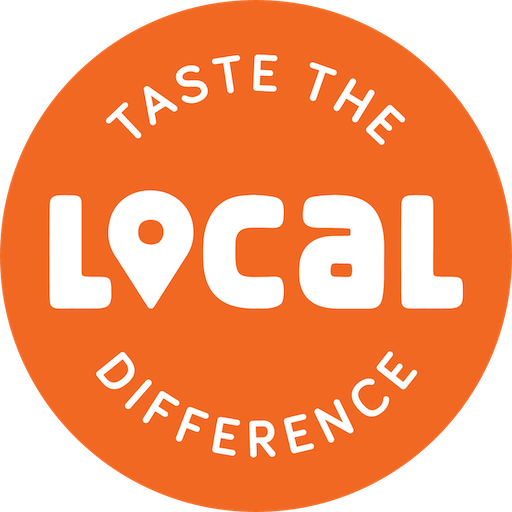“Food sovereignty is the right of peoples to healthy and culturally appropriate food produced through ecologically sound and sustainable methods, and their right to define their own food and agriculture systems. It puts the aspirations and needs of those who produce, distribute and consume food at the heart of food systems and policies rather than the demands of markets and corporations.”
– Declaration of Nyéléni, the first global forum on food sovereignty, Mali, 2007
The commonly used term for neighborhoods lacking access to healthy, affordable food is “food desert.” However, Karen Washington, a food justice advocate, is attempting to shift public discourse by coining the term “food apartheid.” This shift in language begs a deeper look at the dichotomy of our food system. While apartheid is a term normally reserved for South African history, it provides a much needed analysis of the United States’ current food system in lower income areas. By saying “food apartheid,” we call attention to the fact that these food depleted areas do not happen by chance but are part of “the implementation and maintenance of a system of legalized racial segregation in which one racial group is deprived of political and civil rights” and not just desolate places that come to mind when we envision deserts. A desert occurs naturally; an apartheid is created. Deconstructing this apartheid is a necessary element for reaching food sovereignty for all people.
Black Farming through the Ages:
Black farmers made many contributions for what are now standard modern farming practices. For example, we have to thank Henry Blair for the early seed planter, George Washington Carver for explaining the biological regeneration of the soil through the nitrogen cycle and crop rotation through composting, Frederick McKinley Jones for refrigerator trucks, and Booker T. Whatley for championing community farming and sustainable farming efforts. Yet somehow, the agriculture industry we see today is commercialized, industrialized, and frequently attributed to Southern White gentlemen or large White companies.
The whitewashing of farming and agriculture is an injustice to the Black, Indigenous, Hispanic, Latinx and Asian folx that provided the much needed contributions to create modern farming. In 1920, there were nearly one million Black farmers, a number that has yet to be reached again even by half or a quarter in 2021. While Black owned farms are gaining traction, generational trauma and lack of generational wealth severely affect further growth.
One reason for this is lack of land ownership. In 1862, the Homestead Act was signed by Abraham Lincoln while the United States was in the midst of the Civil War. It gave citizens or future citizens of the United States up to 160 acres of public land provided they live on it, improve it, and pay a small registration fee. Five years prior in 1857, the US Land Office denied public land grants to any Blacks. And critically, Black folks were not granted citizenship until the 14th Amendment was ratified in 1868. Therefore, nearly all land was awarded to White settlers, farmers, railroad companies, and lumber barons to prevent Indigenous tribes access to their homeland and keep it out of the hands of Blacks, newly freed following the Civil War and seeking the promise of “Forty acres and a mule.”
Food Sovereignty in Black History:
In 1960, The Black Panthers after Black Hunger advocated for many sustainable food practices in Black communities, including the legendary Free Breakfast for Children, along with the building of community gardens and development of food markets.
In the 1970s, driven by a desire to create an agrarian Black middle class, Booker T. Whatley created the essential framework that nearly all small farm CSA initiatives follow today : The Whatley Diversified Plan for Small Farms. Here’s a taste of his commandments:
“Thy Small Farm Shalt:
I. Provide year-round, daily cash flow.
II. Be a pick-your-own operation.
II. Have a guaranteed market with a Clientele Membership Club.
VIII. Shun middlemen and middlewomen like the plague, for they are a curse upon thee! ….”
Both the Black Panther movement and Whatley’s teachings impacted their local food systems, but they rarely get the recognition they deserve.
The Future of Black Farming and Food Soveignty:
After decades of broken promises, land seizures, and outright negligence, America now must find a way to rectify a world in which racist loan and housing discrimination has hindered access to tasty, affordable and healthy food for generations of Black people. And those promises are only fulfilled by moving from the non-profit industrial complex to food sovereignty. As efforts like the South East Market, the Detroit Black Community Food Security Network, and many others champion access to nutritious and affordable food, the spotlight on Black food sovereignty has brightened. Let’s put the power in the hands of the people.
This Black History month, please consider a donation to Black food coalitions in the US like: https://blackfoodnw.org/donate/
Teiah Faulk is Grand Rapids author, spoken word artist and community activist. Contact her at [email protected].
Header Photo Credit: Bettmann Archive/Getty Images
Check out our list of Black owned farms to support in Michigan.
